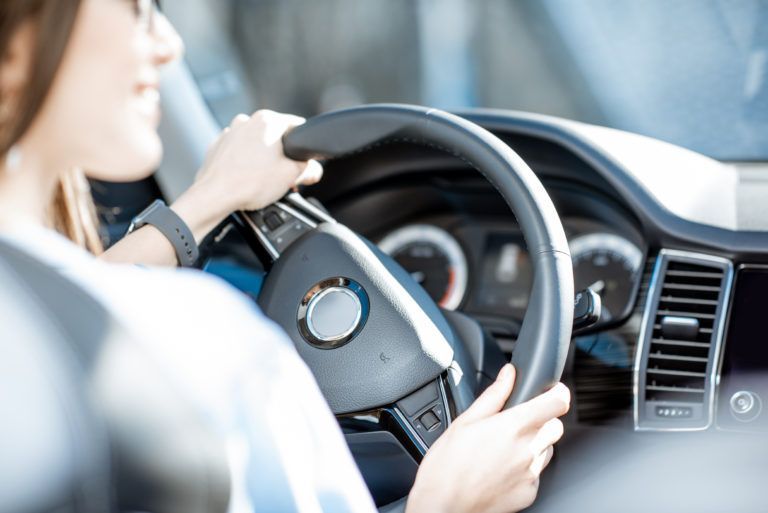Safety Guide for Driving On Southwest Florida Highways

Driving on Florida highways can be an overwhelming, new experience for someone who usually drives in another state. If you are traveling at high speeds while in congested traffic, you are at a significant risk of being involved in an accident. Wearing a seat-belt is essential to your safety. Here are some other tips to help you navigate Florida’s highways with ease.
PREPARE FOR AN EMERGENCY
The more prepared you are for emergencies, the less anxious you will be if an emergency arises. Having a first aid kit, tools to repair a minor breakdown, and a way to contact your roadside assistance service can prevent many problems on the highway.
FIRST-AID KIT
First aid kits in vehicles should contain items tailored to the needs of the driver and passengers. These items include pressure bandages and gauze to stop bleeding, pain relievers, antibiotics, and antihistamines.
KIT FOR BREAKDOWN
Ensure that you have the tools necessary to change a flat tire and perform minor repairs, such as a jack and socket wrench. In addition, you should have jumper cables in case your battery dies. Additionally, when stopped on the side of the highway making repairs or changing a flat tire, you should have some form of reflective clothing to increase your visibility to other drivers.
ASSISTANCE AT ROADSIDE
If you have roadside assistance provided by your automobile insurance or credit card company, ensure that you have the number programmed directly into your phone. Also, ensure that your phone is charged. Before exiting your vehicle in the event of an emergency on the highway, try to reach an exit or rest area. If this is not possible, pull over to the right side of the road as far as possible from lanes of traffic. This is especially true if one of the tires on the driver’s side is flat.
RULES OF THE ROAD
A responsible driver is aware of and follows all traffic laws that apply to the roads they travel.
KEEP RIGHT
In accordance with the law, slower vehicles are required to drive in the right-hand lane. Therefore, you should only travel in “faster” lanes when passing a slower vehicle in front of you – once you complete your pass, you should immediately move back into the right hand lane. When a car approaches you from behind in the left lane, you should immediately move to the right lane to allow it to pass.
CHANGE LANES SAFELY
To ensure that other drivers know your intentions when changing lanes, always use your turn signals. Before changing lanes, make sure that each blind spot has been checked. Never switch lanes over a solid line.
FOLLOW THE SPEED LIMIT
When you drive at higher speeds, you have less time to react to emergencies, such as avoiding a road hazard or another vehicle. Correcting mistakes at highway speeds is more difficult and reduces your margin for error, and exceeding the speed limit further exacerbates the problem. Speeding also gives you less time to come to a complete stop if necessary.
Most Florida highways have a speed limits from 65-70 miles per hour. Please keep in mind that law enforcement aircraft and helicopters communicate with police patrol cars on the ground, and are often used to police speed limits on Florida’s highways.
AVOID DISTRACTIONS
To combat this problem, the State of Florida outlawed talking on a cell phone while driving unless the driver is using a hands-free device. Florida strictly prohibits texting while driving. All other forms of distraction should also be eliminated, or at least minimized. Eating, changing radio stations, and applying makeup are common causes of serious automobile accidents. Driving under the influence of alcohol severely impairs you response time, even more so than common distractions.
ASSESSING TRAFFIC AND ROUTES
Plan your trip in advance to avoid anxiety when driving on high speed highways. Know exactly where you are going, and how to get there rather than figuring it out while driving on the highway. If you miss your exit or turn, do not cut across traffic at the last minute – simply pull off at the next exit or road and get to your destination from there. All smart phones have GPS – use it whenever traveling on the highway so you receive step by step instructions. This will also assist you with avoiding congested traffic. Your GPS will oftentimes reroute you from heavy traffic, constructions zones, and the like.
Despite your best efforts, accidents can still occur. If you are injured in a Florida highway accident, having an experienced personal injury attorney on your side ensures your rights will be protected.
FREE Consultation For All Personal Injury Claims
Learn how our experienced, Southwest Florida personal injury lawyers at Goldman, Tiseo, and Sturges, P.A. can help you recover appropriate compensation during a FREE consultation by dialing (941) 625-6666. We receive no fees until we win your case!
Share This Post:






